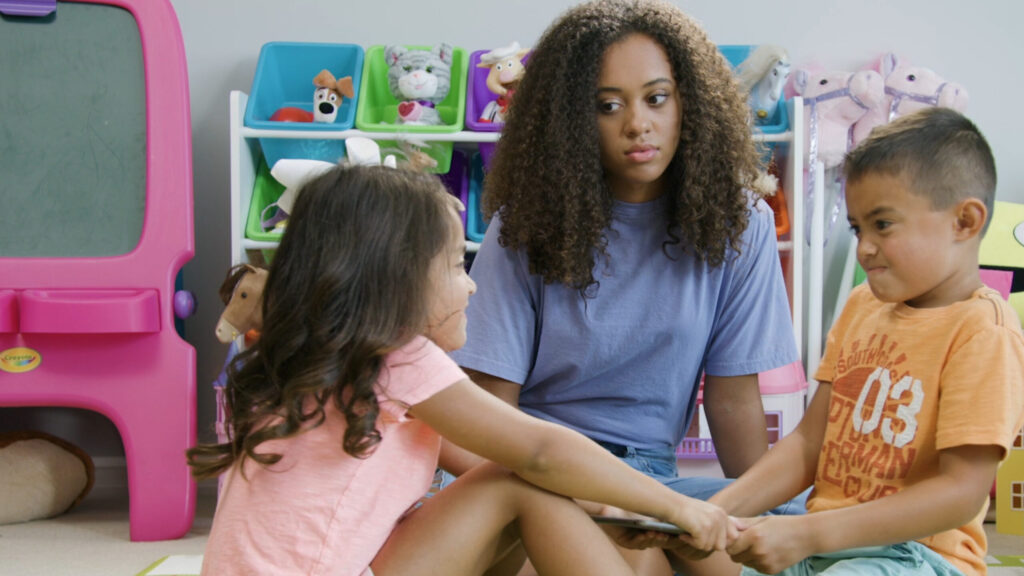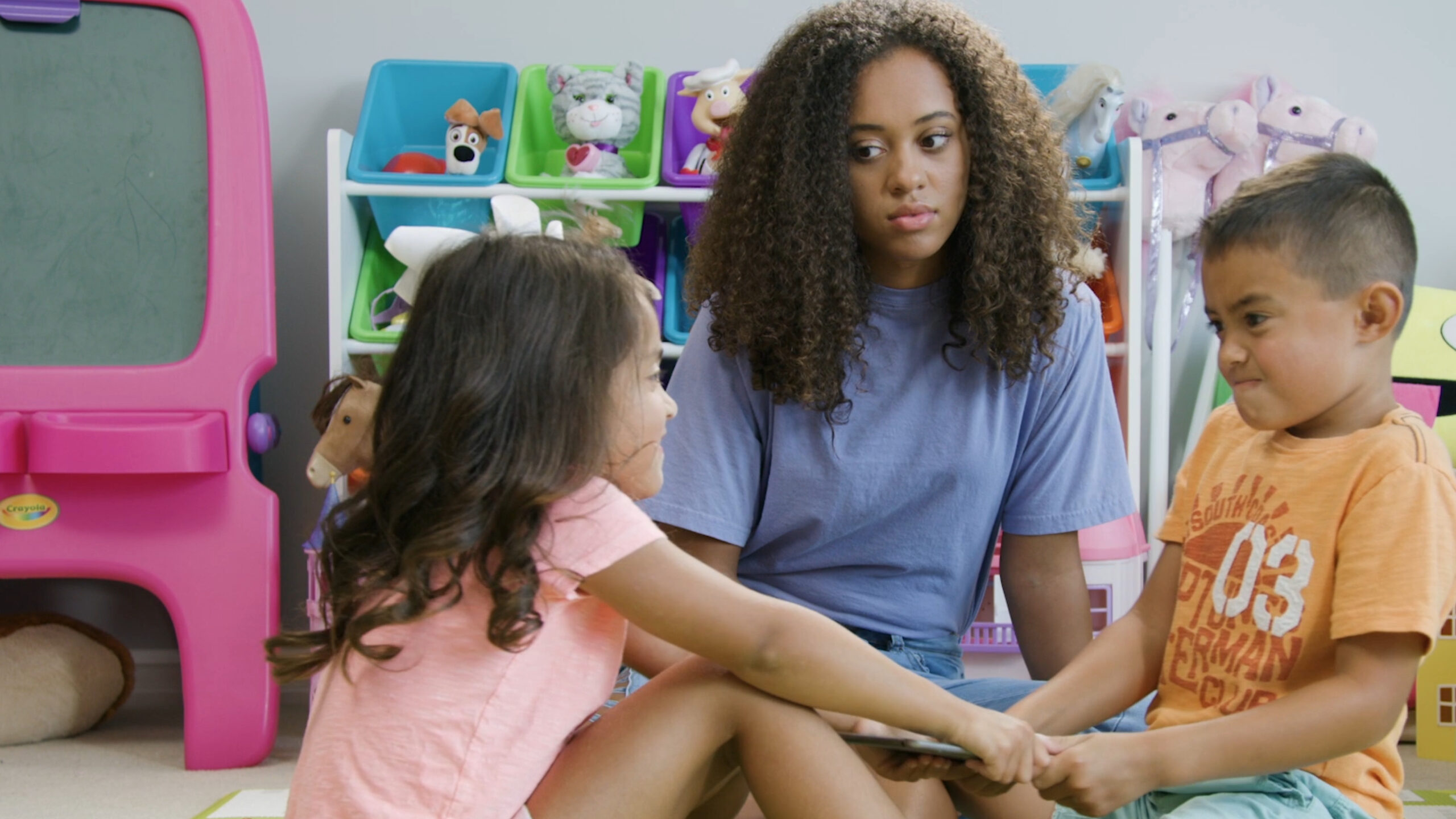
Why Sibling Practice: Fostering Growth, Resolving Conflicts, and Building Lifelong Bonds
Sibling relationships are often the longest-lasting relationships in our lives. They are complex, dynamic, and profoundly influential in shaping our personalities, social skills, and coping mechanisms. While sibling rivalry is a common and often frustrating experience for parents, intentionally cultivating positive sibling practice can yield significant benefits for children’s development and family harmony. This article explores the multifaceted reasons why sibling practice, encompassing structured activities and mindful interactions, is crucial for raising well-adjusted, empathetic, and resilient individuals.
Understanding Sibling Dynamics
Before delving into the benefits of sibling practice, it’s essential to understand the inherent dynamics at play. Siblings compete for parental attention, resources, and validation. They also learn to negotiate, compromise, and empathize through their interactions. These early experiences lay the groundwork for future relationships, both personal and professional. Neglecting these dynamics can lead to unresolved conflicts, resentment, and long-term relationship issues.
The Core Benefits of Sibling Practice
Why sibling practice? The answer lies in the numerous developmental advantages it offers:
Enhanced Social Skills
Sibling practice provides a safe and accessible environment for children to hone their social skills. They learn to share, take turns, negotiate, and resolve conflicts. These skills are directly transferable to other social settings, such as school and extracurricular activities. Through consistent interaction, children develop a deeper understanding of social cues and learn how to navigate complex social situations.
Emotional Intelligence Development
Interacting with siblings exposes children to a wide range of emotions. They witness firsthand how their actions affect others and learn to recognize and manage their own emotions. Sibling practice encourages empathy, compassion, and understanding. By learning to see things from their sibling’s perspective, children develop a stronger sense of emotional intelligence, a crucial skill for building healthy relationships throughout life. This understanding is fundamental to why sibling practice is so important.
Conflict Resolution Skills
Conflict is inevitable in any relationship, and sibling relationships are no exception. Sibling practice provides opportunities for children to learn how to resolve conflicts constructively. Parents can guide this process by teaching children communication skills, problem-solving strategies, and the importance of compromise. Learning to navigate disagreements with siblings helps children develop resilience and the ability to handle conflict in other areas of their lives. The ability to resolve conflict peacefully is a key reason why sibling practice is beneficial.
Improved Communication Skills
Effective communication is essential for healthy relationships. Sibling practice encourages children to express their needs and feelings clearly and respectfully. They learn to listen actively to their siblings and understand their perspectives. This constant interaction fosters strong communication skills that will benefit them in all aspects of their lives. Open and honest communication learned through sibling practice is invaluable.
Increased Self-Esteem and Confidence
Through positive interactions with siblings, children gain a sense of belonging and acceptance. They learn that they are valued and loved for who they are. This contributes to increased self-esteem and confidence. Sibling practice can also help children develop a stronger sense of identity as they learn to differentiate themselves from their siblings. Knowing you are loved and accepted is a powerful motivator for why sibling practice can be so effective.
Academic Benefits
While not immediately obvious, sibling practice can indirectly contribute to academic success. Children who have strong social and emotional skills are better able to focus in the classroom, collaborate with peers, and manage stress. Additionally, siblings can support each other academically by helping with homework, studying together, and providing encouragement. The collaborative environment fostered through sibling practice can extend to academic pursuits.
Strategies for Implementing Effective Sibling Practice
Why sibling practice works relies on how it’s implemented. Here are some strategies for fostering positive sibling interactions:
Creating Opportunities for Shared Activities
Encourage siblings to participate in shared activities that promote cooperation and teamwork. This could include playing games, working on projects together, or engaging in outdoor activities. The key is to choose activities that are enjoyable for all siblings and that provide opportunities for them to interact positively. These shared activities are a cornerstone of why sibling practice is successful.
Establishing Clear Expectations and Rules
Set clear expectations and rules for how siblings should treat each other. This includes rules about sharing, respecting personal space, and resolving conflicts peacefully. Consistency is key; enforce the rules fairly and consistently to ensure that all siblings understand the boundaries. Clear boundaries are essential for why sibling practice can be effective.
Providing Individual Attention
Each child needs individual attention and validation from their parents. Make sure to spend quality time with each child separately, engaging in activities that they enjoy. This helps to prevent feelings of jealousy and competition among siblings. Ensuring each child feels valued is paramount to why sibling practice will work.
Facilitating Communication
Help siblings communicate effectively by teaching them active listening skills and providing them with opportunities to express their feelings. Encourage them to talk to each other about their concerns and to work together to find solutions. Facilitating open communication is a key element of why sibling practice is important.
Modeling Positive Behavior
Children learn by observing their parents. Model positive communication, conflict resolution, and empathy in your own interactions with your spouse and other family members. This provides a powerful example for your children to follow. Showing your children how to interact positively is crucial for why sibling practice will be successful.
Intervening in Conflicts Constructively
When conflicts arise, intervene in a way that promotes learning and growth. Help siblings identify the root cause of the conflict and brainstorm solutions together. Teach them how to compromise and negotiate fairly. Avoid taking sides or blaming one child over another. Guiding them through conflict promotes why sibling practice is beneficial.
Celebrating Individuality
Recognize and celebrate the unique talents and interests of each child. Avoid comparing siblings to each other, as this can lead to feelings of inadequacy and resentment. Encourage each child to pursue their passions and to develop their individual strengths. Recognizing individuality is important for why sibling practice can work effectively.
Teaching Empathy
Help children develop empathy by encouraging them to consider their sibling’s feelings and perspectives. Ask them questions like, “How do you think your sibling felt when that happened?” or “What could you do to make your sibling feel better?” Teaching empathy is central to why sibling practice is so valuable.
Addressing Common Challenges in Sibling Practice
While the benefits of sibling practice are numerous, parents often encounter challenges. Sibling rivalry, jealousy, and power struggles are common. It’s important to remember that these challenges are normal and can be addressed with patience and consistency.
Sibling Rivalry
Sibling rivalry is a natural part of sibling relationships. It’s often rooted in competition for parental attention and resources. To minimize sibling rivalry, provide each child with individual attention, avoid comparing siblings, and teach them how to resolve conflicts constructively. Addressing sibling rivalry is key to why sibling practice can be beneficial.
Jealousy
Jealousy can arise when one sibling feels that another is receiving more attention or praise. To address jealousy, make sure to acknowledge each child’s accomplishments and to provide them with equal opportunities. Help them understand that everyone has different strengths and weaknesses. Addressing jealousy contributes to why sibling practice can be effective.
Power Struggles
Power struggles can occur when siblings compete for control or dominance. To address power struggles, establish clear rules and boundaries, and teach siblings how to negotiate and compromise. Encourage them to respect each other’s opinions and to work together to find solutions. Resolving power struggles is important for why sibling practice is successful.
The Long-Term Impact of Sibling Practice
The benefits of sibling practice extend far beyond childhood. Children who learn to interact positively with their siblings are more likely to develop healthy relationships with others throughout their lives. They are better equipped to handle conflict, communicate effectively, and empathize with others. These skills are essential for success in both personal and professional settings. The lasting impact is a significant reason why sibling practice matters.
Furthermore, strong sibling relationships can provide a source of support and companionship throughout life. Siblings can offer each other emotional support during difficult times, celebrate each other’s successes, and share memories and experiences. This lifelong bond can be a valuable asset, especially as parents age and pass away. This lifelong bond highlights why sibling practice is so important.
Conclusion: Investing in Sibling Relationships
Why sibling practice? Because investing in sibling relationships is an investment in children’s future well-being and happiness. By fostering positive sibling interactions, parents can help their children develop essential social, emotional, and communication skills that will benefit them throughout their lives. While challenges are inevitable, the long-term rewards of strong sibling relationships are well worth the effort. Make sibling practice a priority in your family and watch your children thrive. Remember that nurturing these relationships is a cornerstone of raising well-adjusted and empathetic individuals. [See also: How to Resolve Sibling Conflicts Peacefully] [See also: The Importance of Sibling Support]

